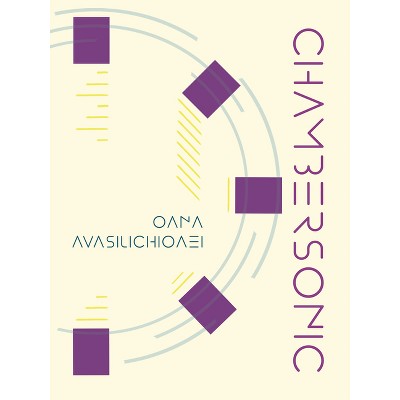About this item
Highlights
- For more than three decades, Robert Lepage's dynamic multimedia performance works have been produced on stages worldwide.
- About the Author: Ludovic Fouquet is a visual artist, actor, teacher, director, and founder of the multimedia theatre company songes mécaniques (Mechanical Dreams) in Blois, France.
- 416 Pages
- Performing Arts, Theater
Description
About the Book
Investigates the influence of technology and visual art in the work of Robert Lepage, leading figure on the international stage.Book Synopsis
For more than three decades, Robert Lepage's dynamic multimedia performance works have been produced on stages worldwide. Celebrated for his bold, visionary aesthetic, Lepage has received several high-profile commissions in recent years, including two Peter Gabriel world tours, Cirque du Soleil's KÁ in Las Vegas, a dramatic staging of Wagner's Ring Cycle at the Metropolitan Opera in New York, and Lorin Maazel's 1984 at London's Royal Opera House.
Despite Lepage's prolificacy, and his status as one of the pioneers of new media performance, little critical writing about his work has been published, particularly in English. Ludovic Fouquet's The Visual Laboratory of Robert Lepage, translated for the first time into English, thus presents much-needed in-depth analysis of Lepage's strategies and practices.
The book's title references the experimentation so integral to Lepage's creative process and the ways in which he and his creative arts company, Ex Machina, have always been attuned to the synergistic possibilities that emerge when art encounters science and technology. Whether as a playwright, actor, film director, or stage director, Lepage is forever in search of new mutations of form and expression, and his unexpected narratives often write themselves out of discoveries he makes when staging a piece - indeed stagecraft often guides story in Lepage's creative realm.
This full-colour volume will be of keen interest for theatre practitioners of all kinds, from set designers to directors, from academics to fans.
Review Quotes
"The Visual Laboratory of Robert Lepage is essential reading for anybody interested in new-media performance and represents a valuable next step in the research of Lepage's theatricality."
- Aleksander Saŝa Dundjerovic
"Fouquet's impressively detailed observations reveal the alchemy taking place in Lepage's 'visual laboratory, ' as well as key influences that have driven his innovative, imagistic theatre from its beginnings ... This book both reintroduces Lepage to scholarship and reminds us of the central position Lepage occupies in contemporary theatre practice."
- James Reynolds
"In illuminating Lepage's methods of creation (where the text often appears only at the end of a process of collective improvisation), [Fouquet] explores the wealth of the playwright's work as well as his occasional failures."
- Marie Labrecque, author of Une longue, longue marche
"Ludovic Fouquet, in addition to being an avid spectator at many of Robert Lepage's shows in Quebec and Europe, has been a privileged witness to the working sessions of the prolific playwright and attended many hours of rehearsal during research for this book."
- Louise Vigeant, JEU: revue de théâtre
"This book will be of great value to those interested in understanding the evolution of Lepage's creativity, as well as to artists, teachers, and students making their own work with Lepage's practice as inspiration."
- Karen Fricker
About the Author
Ludovic Fouquet is a visual artist, actor, teacher, director, and founder of the multimedia theatre company songes mécaniques (Mechanical Dreams) in Blois, France. After
training as an actor and dancer, Fouquet earned his PhD studying Robert Lepage's artistic practice and its relationship to technology. Fouquet edited La trilogie des dragons (The Dragons' Trilogy, L'instant meme, 2005), and developed a photographic monograph of this work. In addition to frequent speaking engagements at French universities, Fouquet contributes regularly to numerous theatre and contemporary art magazines, including Cahiers de Théâtre, JEU, ETC Montréal, and theatre-contemporain.net. Fouquet divides his time between France and Quebec.












